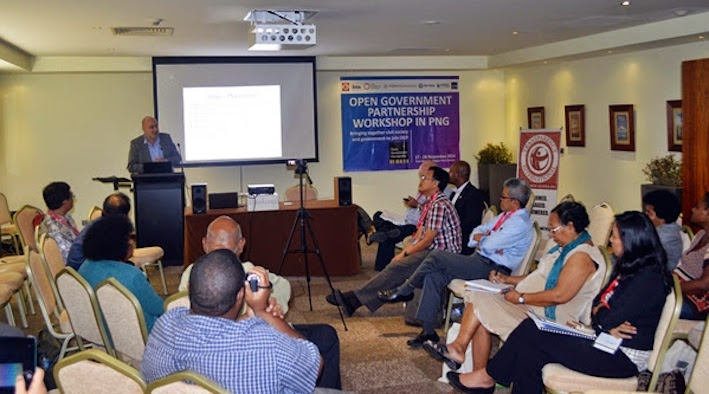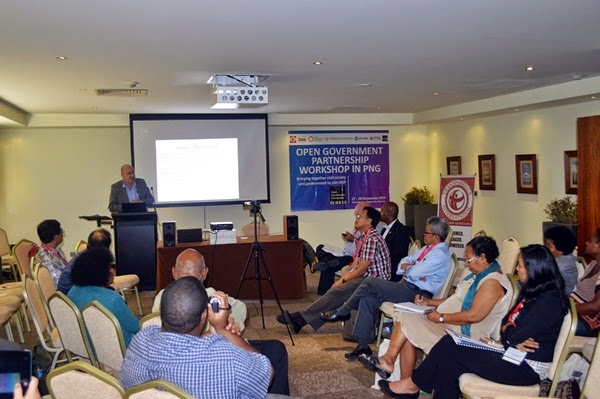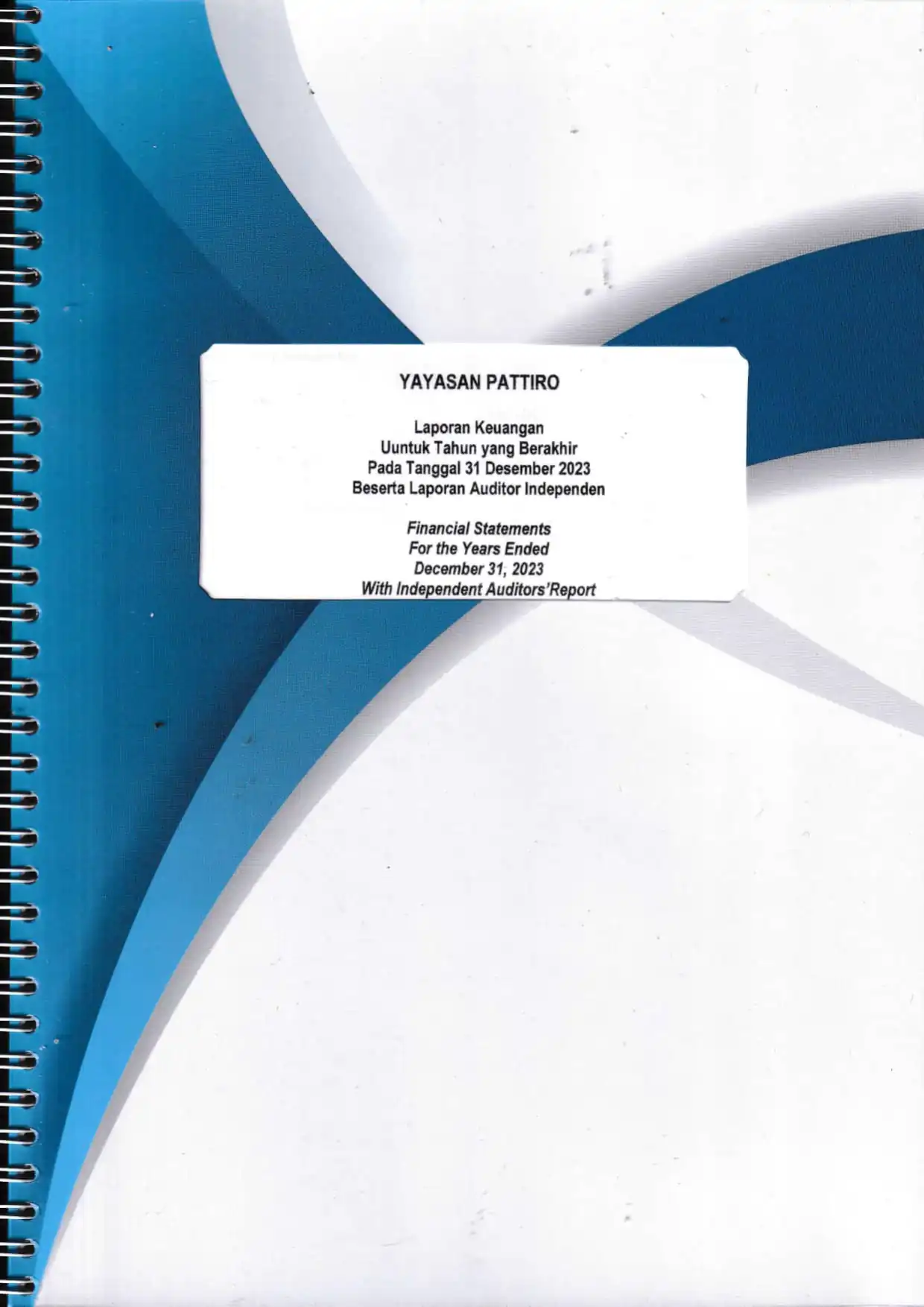“We believe that all of us have something to share and something to learn on how the Government and community continue together to make better governance”, Mr. O’Conroy Doloksaribu, Minister Counsellor, Embassy of Republic of Indonesia to Papua New Guinea, November 2014
Open Government Partnership (OGP). This multilateral movement has given many advantages to its participating countries. One of which is trust. Civil societies have found new hope in the authorities to re-establish the trust to their government while the Government has see a approach to gain public’s trust and improve the governance in their country to be a more accountable government. Society active involvement could be used to maintain and even escalate the accountability competency level of the government, directly or indirectly. Therefore, an open, accountable, and better government would attract both national and international stakeholders to invest in a country for better development programmes.
These irresistible offers prepossess the Papua New Guinea government. Then, in the Asia-Pacific Open Government Regional Conference, they express their interest in joining Indonesia and other countries in OGP. “PNG, therefore, stands to ensure that this commitment will be embraced and shared by the Government,” said Samson Yabon Director of Asia/ASEAN Branch of the Ministry of Foreign Affairs.
Accordingly, in 27 and 28 November 2014, an Open Government Partnership workshop was held in Papua New Guinea. This event is part of the OGP Asia Pacific Outreach collaboratively coordinated by Institute of National Affairs (INA), Transparency International Papua New Guinea (TI PNG), Indonesian Presidential Delivery Unit for Development Monitoring and Oversight (UKP4), Indonesian CSO OGP Secretariat, Center for Regional Information and Studies (PATTIRO), Transparency International Indonesia (TII), and the OGP Support Unit.
Taken place in the Airways Hotel, Port Moresby, the large number of the workshop attendance representing the Papua New Guinea government from Ministry Ministry of Foreign Affairs, and other delegations from other government agencies showed high enthusiasm in taking part in this regional induction. In addition to Papua New Guinea government, representation of civil societies from Papua New Guinea and Indonesia, including OGP Steering Commitee, Sugeng Bahagijo, along with various media representatives also participated in this two-days workshop. Delegates from various Embassies also attended the event, from New Zealand high commission, British High Commission, and Republic of Indonesia. “The Government of Indonesia is pleased to collaborate with our Indonesian CSOs today in Port Moresby to offer any advise or support you need in your journey to becoming an OGP member,” said O’Conroy Doloksaribu in his opening remark.
In this workshop, Indonesia as the OGP participating country represented by the CSOs shared their experiences in developing the partnership with the government and also shared the best practices in the implementation of OGP that have been implemented by both CSOs and the Government. The Indonesian delegates also helped the Papua New Guinea government and CSOs identify the grand challenges that become their large concern. “We hope, in the near future, we will have further cooperation, hand in hand with PNG government and CSOs, in strengthening open government implementation as part of our effort to strengthen our democracy and to fulfill and protect human rights,” said Dadang Trisasongko, Secretary General Transparency International Indonesia in his opening remarks.
As discussed by the participants, there are several problems in Papua New Guinea which could benefit the OGP platform to improve the situation to be better; high rate of corruption, lack of government transparency, lack of consultation and communication between government and civil society, low standard of public services caused by poor public servants’ welfare, and weak law enforcement.
Papua New Guniea has already good policies in place to start with this platform. They have Ombudsman law regulating asset data collection from public officials and right to information guaranteed in the Constitution. Unfortunately, the practice of disclosing the assets data is yet to be regulated. “With the plan to revise the outdated Ombudsman law, PNG should plan to disclose the assets of public officials in the plan of law revision,” added Commissioner of PNG Ombdusman, Phoebe Sangitari. Meanwhile, for the issue raised in right to information, the Constitution alone is not enough for the general citizens to obtain adequate information about their government. “I used to work with the government and even I find it difficult to access government’s information which should belong to public. The right to information on the Constitution is not enough. We need to develop a Freedom of Information Law,” said Elizabeth Avaisa, Senior Project Officer of Consultative Implementation and Monitoring Council (CIMC).
In response to the findings, the government of Papua New Guinea, pleased to see the level of enthusiasm of the key actors attending the workshop, will start conducting follow up actions on the workshop result together between the government and civil societies in the working “interim’ commitee. Mr. Rimbink Pato, Ministry of Foreign Affair Minister of Papua New Guniea, said that they will send the letter of intent to the OGP Support Unit so they can follow the step of Indonesia to become one of the OGP participating countries. “The letter of intent is already prepared so I can expect that it should be dispatched in the next couple of weeks,” Mr. Pato asserted.
“It has certainly made a difference in other countries, and we’re looking forward to seeing how well we can participate with it and what change we can eventually celebrate in Papua New Guinea as well,” closed Chairman of TI PNG, Lawrence Stephens at the end of the workshop.







